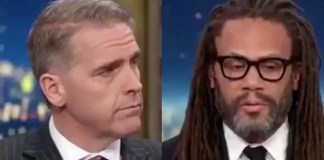By Shavon Arline-Bradley and Ja’Lia Taylor
There is no democracy without a free press. That truth is especially urgent for Black women and our families, who have long relied on trusted media not only for information, but also for protection, representation and empowerment.
In an era of disinformation, misinformation, political polarization and eroding trust in institutions, the vital role of an independent press cannot be overstated. A functioning democracy depends on a well-informed public, and it is through diverse and community-based journalism that citizens can participate meaningfully in civic life and protect their rights. Among the most essential resources in this landscape are the Black Press, public media, and the fundamental right of freedom of the press.
From the earliest days of the Black Press to the local public radio stations that reach us today, these platforms have filled the void left by mainstream outlets that too often ignore or misrepresent us. In communities where trust in traditional institutions is fragile, they have long served as a trusted messenger. This is especially true in public health, elections and education.
The Black Press emerged out of necessity: mainstream newspapers ignored, distorted or dehumanized Black life. In response, Black journalists created their own platforms to tell their own stories. These publications were not merely observers but active participants in the struggle for freedom—amplifying the voices of abolitionists, advocating for anti-lynching laws, supporting voter registration and protection campaigns, and they continue to expose systemic injustice.
“A free and independent press is not a luxury. When it is defunded, our ability to learn, to vote and to lead is weakened.”
These media have educated our children when textbooks failed. They have spoken truth when power tried to silence it. And they have kept our communities informed during crises, from natural disasters to pandemics. Public broadcasters don’t just deliver the headlines; they provide context, history and often an international perspective that many other outlets lack.
Now, these vital sources are in danger.
Congress has cut $1 billion from public broadcasting, threatening PBS, NPR and hundreds of local stations. For many rural and low-income families, these are the only free and reliable sources of news, educational programming and emergency alerts. For Black communities, they are often the only spaces where our stories are told with care and accuracy.
Public media also offers something else: accessibility. Funded in part by taxpayers and sustained by listeners and viewers, public media is free from the gatekeeping of paywalls and subscriptions. They are educational resources that broaden civic understanding and nurture empathy in a fragmented world.
Without public media and a strong Black Press, disinformation and misinformation spreads more easily. Accountability becomes harder. Our children lose access to shows that teach, inspire and reflect their identities. And our communities lose one of the few platforms that truly belong to us.
A free and independent press is not a luxury. When it is defunded, our ability to learn, to vote and to lead is weakened.
We cannot afford to sit back. That is why Congress should restore funding for public media. We all should in turn support local public radio and TV stations. Invest in Black-led journalism.
The future of democracy depends on who controls the narrative. If we want truth, justice, and equity to prevail, then we must fight for the media that fights for us.
NCNW is an “organization of organizations,” composed of more than 350 campus and community-based sections and 37 national women’s organizations that enlightens, inspires, and connects more than 2,000,000 women and men. Its mission is to lead, advocate for, and empower women of African descent, their families and communities. It was founded in 1935 by Dr. Mary McLeod Bethune, an influential educator and activist, and for more than 50 years, the iconic Dr. Dorothy Height was president of the organization.
The opinions expressed in this commentary are those of the writer and not necessarily those of the AFRO.
Great Job Special to the AFRO & the Team @ AFRO American Newspapers Source link for sharing this story.





